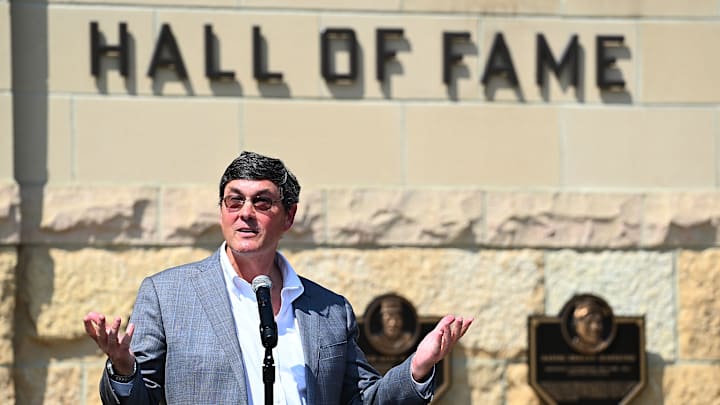Despite the Pittsburgh Pirates crying poor, they actually turn a nice profit, ranking among the top of the league's most profitable teams thanks to a passionate fan base - and, more importantly, a generous helping of revenue sharing money. The majority of that money isn't reinvested in the team, but instead goes into the owner's pocket.
Since 2007, the man in the owner's chair has been Bob Nutting, but his ties to the organization date back nearly a decade prior. Nutting's father, G. Ogden Nutting, purchased a stake in the franchise back in 1996, paving the pathway for his son to take the reins eleven years later.
Despite owning the club and serving as its chairman for the better part of two decades while player salaries have exploded, the Pirates have never cracked the $100 million payroll threshold, with their all-time high, $99.9 million, coming all the way back in 2016.
Nutting might not be the wealthiest owner in the sport; that honor goes to the Mets' Steve Cohen by a large margin. Still, with an estimated net worth of $1.1 billion, he can clearly afford not to use the Pirates as his own personal piggy bank.
How did Nutting come to his fortune? The short answer is he inherited it. The Nutting family has been in the newspaper publishing business dating back to 1890 when his great-grandfather set up Ogden Publishing, which has grown to include dozens of newspapers and magazines, bringing great wealth to the family. Bob Nutting is now the CEO and President of the business.
One would think the cushion of generational wealth would free Bob Nutting up to run the team as if its primary objective was to win ball games, but one would be mistaken. Despite some semblance of a framework for a good team being present on the roster, particularly with Paul Skenes and others combining to form a formidable starting rotation, a lack of investment on Nutting's part has left the Pirates, particularly the offense, in a pitiful state.
To make matters worse, Nutting would rather sell advertising space than continue to honor one of the franchise's (and baseball as a whole's) all-time greats in Roberto Clemente.
With ample time to prove that he's capable of running an MLB franchise, Nutting has put together a pathetic performance that leaves fans in Pittsburgh and beyond wondering if there's any way the league can force him out.
Can MLB force Pirates' owner Bob Nutting out?
The short answer is no. While Nutting is certainly not an owner whose primary concern is winning games over raking in profits, he's far from alone on the list of terrible owners in the sport. And while one may look at the MLB commissioner, Rob Manfred, to force an owner out who clearly cares little about fielding a competitive product on the field, it's important to remember that the commissioner works for the owners and not the other way around.
Currently, there are only two pathways to remove an owner from the sport, and neither is easily achieved. Those would be a breach of the owner's contractual obligations or extreme financial malfeasance. Still, suspensions and fines are the more likely consequences unless the situation becomes extreme.
When is the last time MLB forced an owner to sell the team?
The last time the league was able to successfully force an owner to sell the team was after former commissioner Bud Selig took then-Dodgers owner Frank McCourt to court after the maligned owner suffered an extremely expensive divorce, disputes as to whether McCourt or his ex-wife Jamie was the rightful owner of the team, and bankruptcy filings as McCourt struggled to pay the bills for a team he took out massive loans to purchase.
In other sports, problematic owners have also proven difficult to oust, giving the MLB little precedent to lean on in Nutting's case. Three recent examples of other leagues effectively pulling ownership from atrocious owners include the NFL forcing out Washington Commanders owner Daniel Snyder and the NBA forcing out owners Donald Sterling and Robert Sarver.
In those cases, there was much scandal involved, with Sterling being at the center of a housing discrimination scheme, and Sarver being slapped with a one-year suspension and $10 million fine after a slew of racist and misogynist comments he made came to light.
Snyder, who had a long track record of ineptitude and fostering a hostile work environment, wasn't taken down for those reasons, but rather for financial funny business regarding a secret loan he took out and failed to disclose to his partners or the league.
Unfortunately for the Pirates and MLB at large, no such scandal exists with Nutting, who, while being a terrible owner, is significantly less despicable than these other men. As a result, the Pirates will remain in his control until he decides to cash in his ownership chip. That day doesn't appear to be coming anytime soon.
